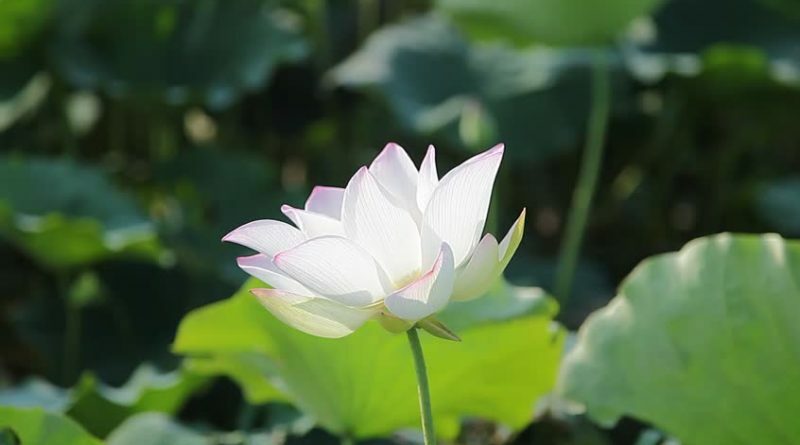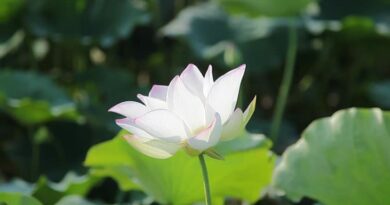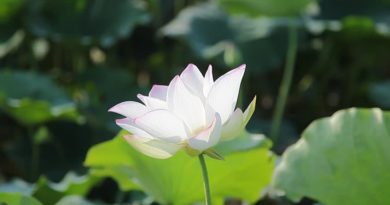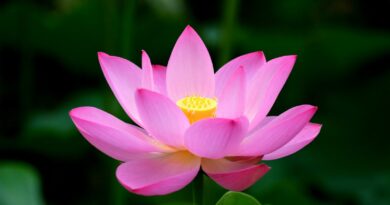This Is Dukkha
This is Dukkha – this is a universally bitter truth which cannot be eliminated by ignoring it, or by turning away from it. We cannot close our eyes to it and wish it away. We cannot make it go by any speculation or argument. To accept the reality of Dukkha is to accept the truth. When we accept the truth of Dukkha, only then can we seek a way to come out of it. In spite of the fact that Dukkha is universal, we still can find a way to eradicate it.
Can there be any impediment to accepting the truth of Dukkha? How evident is this truth, how clear is this fact. How the lives of all living beings are infused with Dukkha! We cannot even imagine how great is the suffering of all sentient beings. Let alone the suffering of the beings of infinite worlds in countless galaxies, we cannot even comprehend the unfathomable suffering of all beings populating our own earth. In this tiny span of time while I am engaged in writing these sentences, on this earth countless smaller beings are being devoured and crushed in bloody jaws; they are being ruthlessly swallowed without any pity. Can we ever measure their agony, their pain, their Dukkha?
Even if we leave aside the suffering of the sentient beings of the animal kingdom, how immeasurable and Iimitless is the Dukkha of man alone? In this one moment of existence, how many sick people in the hospitals of the world are groaning in agony? How many, having sensed impending death are crying in vain, in fear and anguish? In this tiny segment of time, how many beings in the world are being tortured with weapons like guns, rods or swords and how all such suffering beings are overwhelmed by pain, and are thrashing about in agony. How many at this moment are shrieking with anguish because they are caught up in fire, because they are being swept off in a flood to their watery graves, because they are being crushed in an earthquake. How many children who have been orphaned are crying for the loss of their parents? How many widowers are pining for their departed beloveds? How many, at the loss of their wealth, prestige, their position, their power, are beset at this moment with pain? If we were to gather the cries of even one moment of all these suffering people in one place, the listener would no doubt go insane with the extent of the suffering. Who can have any difficulty or reason for not accepting the truth of suffering while living in this universe where there is suffering everywhere?
We certainly do not wish to say that in life there is only Dukkha and not a vestige of any pleasure. But are the pleasures of the senses really something that can be called happiness? Does not that glitter of happiness contain in itself the shadow of pain? Does not that hilarious laughter contain in itself the seeds of sorrow? Does not that fun-filled situation contain the truth of sorrow? There is no sensual pleasure which is permanent, unchanging, everlasting. There is not a single pleasure in the sensual sphere which one could enjoy with some satisfaction forever. All pleasures are impermanent, are changing, must come to an end. Whatever is impermanent is unsatisfactory, after all. When we get attached to something because it seems pleasurable to us, how great is the sorrow when the pleasure is no more; the pain becomes intense. No matter what may be the nature of the pleasure, the conclusion of that pleasure is inevitable. Either in this life time the pleasure ends, or if they continue, the individual who enjoyed them comes to the end of his life span. In both of these situations, parting does come and this bring in its wake untold suffering.
In one of the folk sayings of the Rajasthan, seven types of world pleasures have been enumerated. The original text contains here a verse which lists the following kinds of pleasures:
- The pleasure of the absence of any disease;
- The pleasure of wealth;
- The pleasure of a virtuous spouse;
- The pleasure of obedient children;
- The pleasure of influence in the Government;
- The pleasure of a comfortable abode;
- The pleasure of being erudite.
(The verse states that these pleasures have been created by the Creator).
Who knows which “Creator” was responsible for creating these impermanent pleasures? Although it is quite true that in the mundane existence we see, know and experience these pleasures, it is also quite true that all these pleasures never last.
The person endowed with the healthiest body someday becomes a victim of some disease. And whose fortunes in wealth do not wax and wane? Who can absolutely guarantee the virtues of one’s spouse? Who can hope that his children will always be obedient? How can one be sure of good influence with the authorities, especially when people in power too do not remain there forever?
Situations often arise when one is required to leave hearth and home or even one’s country. Educational wisdom, too, does not remain useful forever; the fast changing times and progresses in the various fields of education often make old knowledge useless. So we see how all these seven types of much sought-after pleasures are transitory, impermanent and ever-changing. There is no pleasure which lasts forever, nor can the one who enjoys the pleasure last indefinitely.
In the eyes of the world, a person may be considered very happy or even consider himself very happy. How long do these people enjoy such pleasures? How quickly does the momentary brightness turn into darkness! To the degree a person gets involved in and attached to these pleasures, to the same degree, he involves himself in inevitable suffering. But the one, who enjoys these with detachment, clearly understanding the impermanent nature, is always safe from the suffering when these pleasures end. Therefore, while enjoying these pleasures, if we are aware of their changing, impermanent nature, if we are aware of the inherent Dukkha in them, then we remain free of the pain that comes along when these pleasures end. To see Dukkha in our pleasures is to see the truth which destroys Dukkha, a righteous way of life which ensures our well-being.
Someone declares that he is happy, he is peaceful, he is healthy – it is those who are unhappy, miserable and sick who need to meditate. But if the poor man does not see the deep underlying tension in himself, if he does not accept the existence of Dukkha, how can he ever gain freedom from it? The question arises that if someone is ignorant of his Dukkha, is he not happy? What are we to gain by destroying this bliss of ignorance? Why should we make him see his Dukkha and make him unhappy?
These questions, from a cursory point of view, seem quite apt and reasonable, but actually they lack understanding. Take an example: someone’s house is on fire and slowly the leaping flames are spreading to the entire building while the owner of the house, in some cozy bedroom, is in deep sleep. In this situation, if this man continues to enjoy his deep slumber, will this pleasure be advantageous to him? Certainly not. The sooner he wakes up from the pleasure of his slumber, the sooner he will free himself from the misery of impending disaster which is gradually enveloping him from all sides and is slowly creeping in on him from every corner.
The purpose of seeing the truth of Dukkha is that as soon as the Dukkha raises its head, we see it, we apprehend it, and at once extinguish the fire of this Dukkha so it cannot be spread. As soon as a man gets madly attached to some pleasure, he engulfs himself in the fire ofDukkha, which by its very nature keeps spreading. Now if this man were to be aware of the Dukkha involved in the attachment to his pleasure while he is enjoying the pleasure, then he would not allow the fire to spread and while he was enjoying the pleasure, he would not get tensed or excited; and when the pleasure ended, even then he would not become miserable, because all along he had been understanding the ephemeral nature of pleasure. So, the ceasing of the pleasure does not necessarily become a cause for his suffering.
Everyone, without any exception, experiences some of the truth of suffering, but it is only when the suffering is experienced and observed objectively rather than indulged in that, the truth of it becomes beneficial, that it becomes a Noble Truth. To cry, to writhe, to whimper in pain because of some physical suffering is, no doubt, seeing the truth of suffering, but to observe and understand the suffering underlying the apparent enjoyment of boisterous laughter, wine and song is to really see the Noble Truth of Suffering. When one observes and understands the pathos underlying the flood of pleasure experienced upon beholding the physical beauty of a woman, one sees the Noble Truth of Suffering.
It is quite evident that to observe the truth of suffering when one is in some pain is not really to observe the Noble Truth of Suffering. But to observe the underlying suffering, the ever present pain, the inevitable misery, in the situations, events and pleasures which are tantalizing and joy-imparting, is to see the noble Truth of Dukkha, which liberates, which makes us free. As long as, we are unable to observe the real nature of sense pleasures, we shall continue to cling to them – and this is, after all, the main cause of all our suffering.
So, if we are to fully understand, fully comprehend Dukkha, then we have to understand and consider the subtle reality. At the level of experience, within the framework of one’s own body, one observes the transitory, impermanent nature of reality and thus realizes the nature of the entire mind-matter universe. All these sense worlds and the other planes of existence are impermanent and whatever is impermanent is Dukkha, is Dukkha, is Dukkha.
To understand and to observe this reality is to comprehend, to appreciate the First Noble Truth; and it is this understanding of the Noble Truth of suffering which can take us toward the freedom from all suffering.
Source: https://www.vridhamma.org





